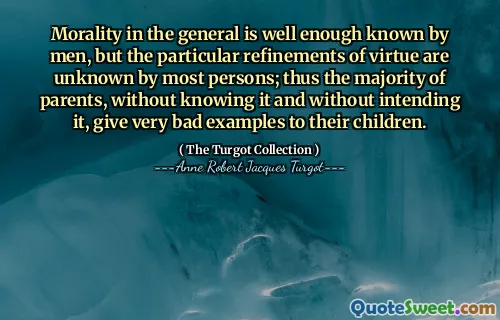What is certain is this, that I never rested in that way again, my feet obscenely resting on the earth, my arms on the handlebars and on my arms my head, rocking and abandoned. It is indeed a delporable sight, a deplorable example, for the people, who so need to be encouraged, in their bitter toil, and to have before their eyes manifestations of strength only, of courage and joy, without which they might collapse, at the end of the day, and roll on the ground.
In the excerpt from Samuel Beckett's "Molloy," the narrator reflects on a moment of vulnerability, contrasting it with the need for strength and resilience in dire circumstances. The imagery suggests a state of abandonment and helplessness, symbolizing a departure from dignity and purpose. This scene serves as a reminder that resting or showing weakness can appear pitiable, especially when encouragement and strength are vital for those facing hardship.
The narrator emphasizes the importance of presenting strength and joy to inspire others who are enduring difficult times. This notion underscores the idea that society thrives on positive examples, which can uplift those struggling with their own challenges. The description of resting becomes a metaphor for the human condition, illustrating how our moments of weakness must be balanced with demonstrations of courage to prevent despair within the community.


